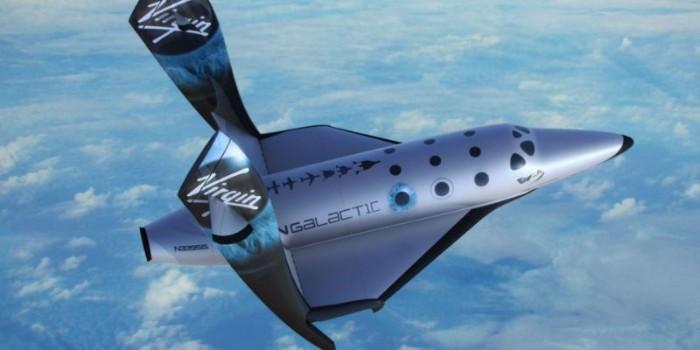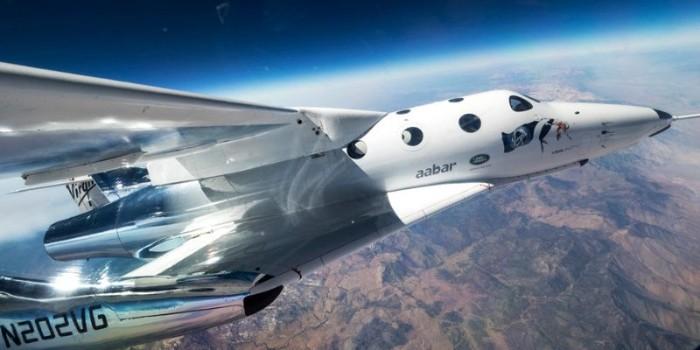How Virgin Galactic (SPCE) Makes Money
Jul 30, 2023 By Rick Novak
Exploring the depths of space has been a dream of humankind since the early days, and with Virgin Galactic (SPCE), that dream is becoming a reality. SPCE was founded in 2004 by famed entrepreneur Sir Richard Branson to make commercial space flights accessible to people worldwide.
This company is now more than just an idea – it's a booming business. But how exactly does SPCE generate income?
This blog post'll delve into what Virgin Galactic does and where its money comes from. So if you're curious about how one of humanity's most ambitious projects becomes profitable, keep reading.
Virgin Galactic's Financials

Virgin Galactic Holdings (SPCE) is a publicly-traded company that has been profitable since its first IPO in 2019. The company earns its revenue primarily from two sources: passenger ticket sales and third-party flight services.
Passenger Sales are the primary source of Virgin Galactic's income.
As more people sign up to experience space travel, ticket prices will increase. The ticket price for a flight on Virgin Galactic is currently around $250,000. These ticket sales account for the majority of Virgin Galactic's revenue.
Virgin Galactic also provides third-party services to other aerospace companies and research organizations. This includes providing satellite launch services and conducting experiments in zero-gravity environments.
In addition, the company has begun offering point-to-point transportation services that will allow passengers to fly between two locations on the same day. These services help to diversify Virgin Galactic's revenue streams and bring in additional income.
Investors interested in Virgin Galactic should know the potential risks of space travel, such as technical failures or delays. Additionally, Virgin Galactic may struggle to grow its customer base since no other companies currently offer similar services.
However, Virgin Galactic's financial prospects could improve substantially as the company's safety record improves and more people become interested in space travel.
Virgin Galactic Holdings (SPCE) is a unique company continuing to innovate and expand its offerings. While risks are associated with investing in space travel, the potential rewards can be substantial.
With its cutting-edge technology and experienced management team, Virgin Galactic is well-positioned to capitalize on an exciting new market.
Business Segments
Virgin Galactic operates its business across two segments: Spaceflight Services and Manufacturing.
- Spaceflight Services: This segment includes developing and operating commercial spacecraft for manned and unmanned orbital space tourism services and other potential applications such as satellite launch services. These services are provided to paying customers, government entities, corporations, research institutions, and other customers.
The Spaceflight Services segment also includes developing related products and services, including customer booking services, spaceflight mission design and simulation, astronaut training programs, and future initiatives such as in-space manufacturing and research activities.
- Manufacturing: This segment is responsible for designing and manufacturing spacecraft components from scratch or using existing designs that can be modified to meet specific customer requirements. These components include launch vehicles, spacecraft structures, propulsion systems, avionics systems, and other related components.
In addition to its main two business segments, Virgin Galactic generates revenue through partnerships with companies such as Under Armour and Boom Technology. These partnerships provide a source of non-space flight-related income for the company.
Virgin Galactic also provides its customers various ancillary services, such as spaceflight mission design and simulation, astronaut training programs, customer booking services, and more. These services help to bring in additional revenue and enhance the overall experience of Virgin Galactic's customers.
Virgin Galactic makes money by providing commercial spacecraft services for orbital space tourism, satellite launches, and other potential applications. The company also generates revenue through partnerships with companies such as Under Armour and Boom Technology and by providing ancillary services to customers.
Recent Developments

Since its launch in 2004, Virgin Galactic has made significant progress toward providing accessible space travel for commercial and private customers. In 2018, the company completed the first-ever powered flight of a human spacecraft, and in 2019 they flew two passengers to suborbital space.
In February 2021, the company announced it had gone public through a merger with Social Capital Hedosophia, an investment company.
The new public listing has provided the company with additional capital to invest in further developing its spaceflight technology and services. Virgin Galactic is now using this funding to expand its operations, build its space infrastructure, and create business partnerships that will enable it to become a major force in the growing space tourism industry.
The company is researching and developing advanced technologies, such as supersonic jets, hypersonic jets, and electric propulsion systems, that will enable it to provide faster, more efficient air travel.
Shortly, Virgin Galactic plans to offer more frequent commercial space flights and additional services, such as research in space-based manufacturing. The company has also announced that it is developing a luxury spaceliner for private citizens who want a truly out-of-this-world experience.
Virgin Galactic makes money primarily through providing spaceflight services, such as suborbital flights and research missions. Additionally, the company is exploring new sources of revenue by developing luxury space travel packages and partnerships with other companies interested in space exploration and tourism.
As Virgin Galactic continues to make great strides in space technology and transportation, its future looks bright. With increased access to space travel, the company hopes to inspire millions more people to experience the wonders of outer space firsthand.
By offering an unparalleled space experience, Virgin Galactic is well-positioned to become a leader in the new age of private spaceflight. With its cutting-edge technology and innovative business model, the company is poised to revolutionize how we explore and experience our universe.
FAQs
Will Virgin Galactic become profitable?
Yes, Virgin Galactic expects to become profitable shortly. The company has already achieved considerable growth and is expanding its offerings. Its business model continues to evolve to meet changing customer demands. With its focus on commercial space travel, the profit potential is vast. The company is also exploring other revenue-generating avenues, including satellite launches and space tourism.
Who is funding Virgin Galactic?
Virgin Galactic is privately funded by the Virgin Group and its founder, Sir Richard Branson. They have also raised funds from outside investors, including Abu Dhabi's Aabar Investments PJS and Saudi Arabia's Public Investment Fund (PIF). The company has received additional investments from Social Capital Hedosophia Holdings Corp.
Why did Virgin Galactic drop so much?
Virgin Galactic stock dropped drastically after the COVID-19 pandemic, as most other stocks had. The demand for commercial space travel decreased significantly due to restrictions and safety concerns. Additionally, Virgin Galactic's plans to launch its first astronauts into orbit were put on hold due to these circumstances. They have since then resumed their operations and are looking to capitalize on the increasing demand for space exploration.
Conclusion
Virgin Galactic has a unique business model worth examining. By understanding the various components of its revenue channels, investors can understand the financials of Virgin Galactic (SPCE) more deeply. Not only is SPCE a great asset for diversification within a portfolio, but it could also feature massive upside potential.
Moreover, the advancements made over recent years - especially those related to ship production and launch capabilities - bode well for the company's future growth and success. Therefore, we encourage investors everywhere to look beyond traditional stocks and dive deeper into Virgin Galactic (SPCE) by exploring how they make money today and shortly.








